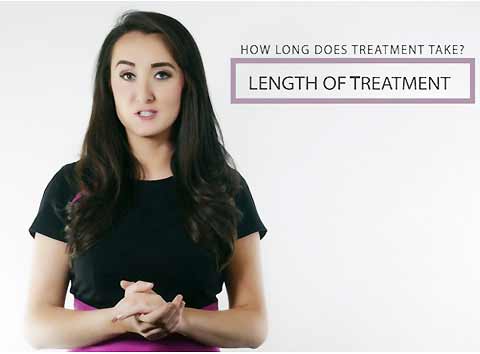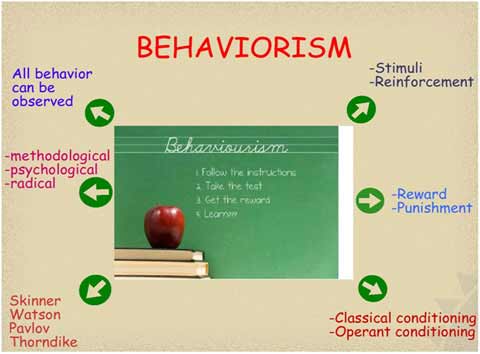Treatment
Both process addiction and behavioral addiction have many dimensions causing disarray in many aspects of the addicts' life. Treatment programs are not a one size fits all phenomenon, hence there are different modalities or levels of care. Effective treatment programs incorporate many components to address each dimension. The addict suffers from psychological dependence and some may suffer from physical dependence. Helping an individual stop using drugs is not enough. Addiction treatment must also help the individual maintain a drug-free lifestyle, and achieve productive functioning in the family, at work, and in society. Addiction is a disease which alters the structure and function of the brain. The brain circuitry may take months or years to recover after the addict has recovered. This may explain why drug abusers are at risk for relapse even after long periods of abstinence and despite the potentially devastating consequences. Research shows that most addicted individuals need a minimum of 3 months in treatment to significantly reduce or stop their drug use, however treatment in excess of 3 months has a greater success rate. Recovery from addiction is a longterm process.
Modalities of Care
The modality or level of care needed for a patient is decided by the treating professional in conjunction with the patient when feasible. As expected the patient receiving treatment will likely take steps forward and backward the level of care will likely to fluctuate. Common modalities are explained.
Detoxification and Medically Managed Withdrawal
The process when the body rids itself of drugs is referred to as detoxification, and is usually concurrent with the side effects of withdrawal which vary depending on the substance(s) and are often unpleasant and even fatal. Physicians may prescribe a medication that will help decrease the withdrawal symptoms while the addict is receiving care in an inpatient or outpatient setting. Detoxification is generally considered a precursor to or a first stage of treatment because it is designed to manage the acute and potentially dangerous physiological effects of stopping drug use.


Long-term Residential
Treatment is structured and operates 24 hours a day. Residents will remain in treatment from usually 6 to 12 months while developing accountability, responsibility and socialization skills. Activities are designed to help addicts recover from destructive behavior patterns while adopting positive behavioral patterns. Constructive methods of interacting with others and improving self-esteem are other areas of focus. The therapeutic community model is an example of one treatment approach. Many therapeutic communities provide a more comprehensive approach to include employment training and other support services.
Short-term Residential
Short-term residential programs are on average 3–6 weeks in a residential setting. The program is intensive followed by more extended outpatient treatment to include individual and/or group therapy, 12-step Anonymous programs, or other forms of support. Because of the short duration of this modality it is even more important for individuals to remain active in outpatient treatment programs to help decrease the risk of relapse following residential treatment.


Outpatient-treatment Programs
Outpatient treatment program vary regarding the services offered and the intensity. It's more affordable and may be more suitable for patients who are employed full-time and/or who have secured multiple social supports. Outpatient programs may include group and/or individual therapy, intensive outpatient program, and partial hospitalization. Some outpatient programs are also designed to treat patients with medical or other mental health problems in addition to their drug disorders.
Individualized Drug Counseling
Individualized drug counseling not only focuses on reducing or stopping illicit drug or alcohol use; it also addresses related areas of impaired functioning such as employment status, illegal activity, and family/social relations as well as the content and structure of the patient's recovery program. Through its emphasis on short-term behavioral goals, individualized counseling helps the patient develop coping strategies and tools to abstain from drug use and maintain abstinence. The addiction counselor encourages 12-step participation (at least one or two times per week) and makes referrals for needed supplemental medical, psychiatric, employment, and other services.


Group Counseling
An outpatient treatment option facilitated by a treatment provider and used to expand on the support system the patient already has. Groups foster a non-judgmental environment allowing patients to meet and discuss difficulties and successes of their addiction while providing on-going support that is needed to be successful with recovery.
Intensive Outpatient Program (IOP)
As the name implies this is an outpatient treatment option designed for addicts who for various reasons do not have the opportunity to attend an inpatient treatment program, yet who otherwise would not be able to receive the level of support needed to recover from their addiction. Programs vary in duration based on the patients need. Because of the lower level of support offered IOP is frequently used as a step down approach from patients leaving inpatient treatment but who are still in need of intensive therapy.


Prevention, Relapse & Recovery
Therapeutic Orientations & Approaches:
In 1878 the Index Medicus published research conducted and written by American physician W.H. Bentley. Bentley's research described his success in treating patients addicted to the ‘opium habit’ w/cocaine. Two years later he reported success in treating both opium and alcohol abusers w/cocaine.1 Today, the swapping one addiction for another is referred to as crossover addiction.40
A variety of treatment approaches are utilized by health professionals in order to provide their clients the highest possible level of success to overcome their addictions. There is no one specific approach and often therapists will use multiple techniques.
- Behaviorism.
- Humanistic Therapy.
- Cognitive Behavioral Therapy (CBT).
- Dialectical Behavioral Therapy (DBT).
- Psychodynamic.
- Expressive.
- Integrative.
- Harm Reduction.
- Eclectic.
- Animal Assisted Therapy.


Counseling in 3 Hospice
Counseling is the activity of the counselor, or a professional who counsels people especially on personal problems and difficulties. In order to become a licensed mental health counselor in our country, one must hold at least a master's or doctoral degree.
Sub-disciplines of psychology
Psychology is the science of behavior and mental processes. Its immediate goal is to understand individuals and groups by both establishing general principles and researching specific cases.
This is a list of 3 Hospice counseling topics
- Conflict resolution
- Conflict resolution research
- Creative problem solving
- Dialogue
- Dispute resolution
- Emotional conflict
- Experiential education
- Family therapy
- Health psychology
- Human Potential Movement
- Interpersonal communication
- Intrapersonal communication
- Mediation
- ulti-theoretical psychotherapy
- Nonverbal communication
- Nonviolent communication
- Problem solving
- Reconciliation
- Relationship education
- Responsibility assumption
- Self-help
- Social psychology (psychology)
- Social psychology (sociology)
- Social work
- Stress management
- Trans theoretical Model


Psychotherapy and 3 Hospice
Psychotherapy is the use of psychological methods, particularly when based on regular personal interaction, to help a person change and overcome problems in desired ways. Psychotherapy aims to improve an individual's well-being and mental health, to resolve or mitigate troublesome behaviors, beliefs, compulsions, thoughts, or emotions, and to improve relationships and social skills. Certain psychotherapies are considered evidence-based for treating some diaged mental disorders.
There are over a thousand different psychotherapy techniques, some being minor variations, while others are based on very different conceptions of psychology, ethics (how to live) or techniques. Most involve one-to-one sessions, between client and therapist, but some are conducted with groups, including families. Psychotherapists may be mental health professionals such as psychiatrists or psychologists, or come from a variety of other backgrounds, and depending on the jurisdiction may be legally regulated, voluntarily regulated or unregulated (and the term itself may be protected or not).
This is a list of 3 Hospice counseling topics
- Co-counseling
- Career Counseling
- Connectionism
- Counseling psychology
- Consultant
- Cr counseling
- Crisis hotline
- Disciplinary counseling
- E-mail counseling
- Emotional therapy
- Existential counseling
- Exit counseling
- Genetic counseling
- Grief counseling
- Grief therapy
- Organic Counseling
- Marriage counseling
- Mental Health Care Navigator
- Mental health counseling
- Narrative therapy
- Online counseling
- Person-centered therapy
- Post- venation
- Pre-conception counseling
- Professional practice of behavior analysis
- Re-evaluation Counseling
- Rehabilitation counseling
- Relationship counseling
- Relationship education
- Senior peer counseling
- Solution focused brief therapy
- Suicide intervention
- Telephone counseling
